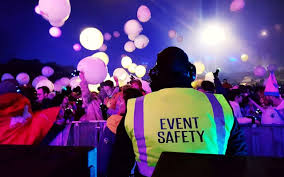It is a critical aspect of planning any event, from small community gatherings to large-scale concerts or festivals. Ensuring the safety of attendees, staff, and performers is not only a moral obligation but also a legal requirement. In this inclusive guide, we will explore the various legal considerations that event organizers must address to ensure effective and compliant security.
Understanding the Legal Framework
The legal landscape surrounding event security can be complex, involving local, state, and federal regulations. These laws are designed to protect public safety and ensure that event organizers take appropriate measures to prevent and respond to potential security threats.
Permits and Licenses
One of the first steps in ensuring legal compliance for security is obtaining the necessary permits and licenses. This process varies depending on the location and type of event. Common permits include public assembly permits, noise permits, and alcohol licenses. It's essential to check with local authorities to determine the specific requirements for your event.
Liability and Insurance
Liability is a significant legal consideration for security. Event organizers can be held liable for injuries, damages, or incidents that occur during the event. To mitigate this risk, it is crucial to secure inclusive insurance coverage. This typically includes general liability insurance, which covers bodily injury and property damage, and may also include specialized policies like event cancellation insurance.
Security Personnel and Training
Hiring and training security personnel is a critical component of event security. Ensuring that your security team is well-trained and properly licensed is not only essential for effective security but also a legal requirement in many jurisdictions.
Licensing Requirements
Many states and municipalities require security personnel to hold specific licenses or certifications. These requirements often include background checks, fingerprinting, and completion of training programs. It's important to verify the licensing requirements in your area and ensure that all security personnel are compliant.
Training Programs
Adequate training for security personnel is crucial for both safety and legal compliance. Training programs should cover a range of topics, including conflict resolution, crowd control, emergency response, and first aid. Regular refresher courses are also recommended to keep security staff up to date with the latest practices and regulations.
Crowd Management and Control
Effective crowd management is essential for preventing incidents and ensuring the safety of attendees. Legal considerations in this area focus on maintaining order and preventing overcrowding, which can lead to dangerous situations.
Capacity Limits
One of the most critical aspects of crowd management is adhering to venue capacity limits. Exceeding these limits can result in overcrowding, which poses significant safety risks and can lead to legal penalties. It's essential to know the maximum capacity of your venue and monitor attendance to ensure compliance.
Emergency Exits
Ensuring that there are adequate and clearly marked emergency exits is a legal requirement for event security. Exits must be unobstructed and easily accessible to allow for quick evacuation in the event of an emergency. Regularly inspect exits to ensure they meet legal standards and are free from hazards.
Emergency Response Planning
An effective emergency response plan is vital for addressing potential security threats and ensuring the safety of all event participants. This plan should be inclusive, covering a range of possible scenarios, from medical emergencies to natural disasters.
Risk Assessment
Conducting a thorough risk assessment is the first step in developing an emergency response plan. This involves identifying potential threats and vulnerabilities, such as fire hazards, weather-related risks, or the possibility of violent incidents. Understanding these risks allows you to develop strategies to mitigate them.
Conclusion
Event security is a multifaceted and legally complex aspect of event planning. From obtaining permits and licenses to managing crowd control and ensuring accessibility, there are numerous legal considerations that event organizers must address. By understanding and adhering to these legal requirements, you can create a safe and secure environment for all attendees, staff, and participants, ensuring the success of your event.





Comments